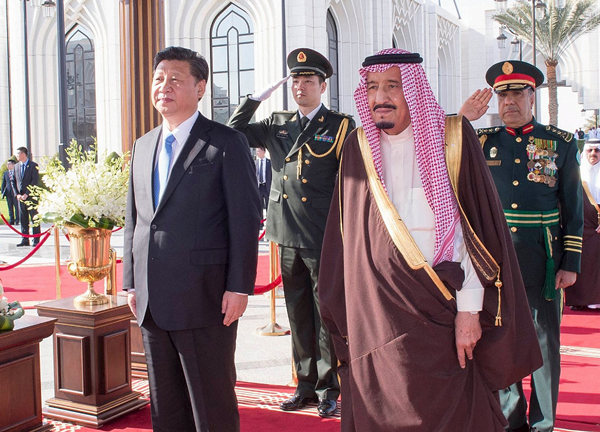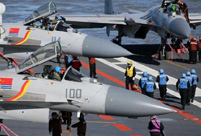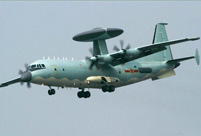


President Xi Jinping is welcomed by Saudi King Salman bin Abdulaziz Al Saud at a ceremony in Riyadh on Tuesday. Xi arrived in Saudi Arabia on the first stop of a three-nation tour of the Middle East. [Photo/Agencies]
President Xi Jinping witnessed ties between China and Saudi Arabia lifted to a higher level on Tuesday by securing wide-ranging deals covering energy, industrial capacity cooperation and the Belt and Road Initiative.
The president arrived in Riyadh, the Saudi capital, at the start of a three-nation Middle East tour that will also take him to Egypt and Iran. It is his first visit to the region since he took office.
Four Saudi fighter jets escorted the plane carrying Xi into Riyadh.
Xi said Saudi Arabia is a major Arab country and Islamic power, and the two-way relationship has "achieved great leaps forward" in the past 26 years, greatly benefiting the two peoples.
Xi and King Salman bin Abdulaziz Al Saud witnessed the signing of a memorandum of understanding on advancing the Belt and Road Initiative and production capacity cooperation.
Other agreements were signed on energy, telecommunication and aviation.
The two countries released a joint statement on forming a comprehensive strategic partnership and agreed to boost their joint development strategies.
Annual trade between the nations reached $69.1 billion in 2014, about 230 times the figure in 1990, the year that diplomatic ties between Beijing and Riyadh were established.
Ahead of his talks with the king, Xi received a ceremonial welcome at the Royal Court. His motorcade was escorted by mounted guards, and he inspected an honor guard of troops.
Xi told the king that raising ties to a new level will "deepen bilateral strategic trust and lead the two countries to greater outcomes from mutually beneficial cooperation".
The king said Saudi Arabia supports China's Belt and Road Initiative, and is ready to deepen cooperation in fields such as trade, investment, energy, education, and science and technology.
After the talks, the king presented Xi with a King Abdul Aziz Medal.
Saudi Arabia is China's largest crude oil supplier and largest trade partner in the West Asia and North Africa region.
China is also among Saudi Arabia's top trading partners.
Wu Bingbing, a professor of Middle East studies at Peking University, said the agreements signed on Tuesday "showcase the future pathways for Saudi Arabia to upgrade its industries", and will effectively serve the country's plan to diversify its economy.
"As its consumption of crude oil surges, Saudi Arabia is seeking alternative energy sources such as nuclear and recyclable ones," Wu said.
 PLA holds joint air-ground military drill
PLA holds joint air-ground military drill Charming female soldiers on Xisha Islands
Charming female soldiers on Xisha Islands Beautiful skiers wear shorts in snow
Beautiful skiers wear shorts in snow Getting close to the crew on China's aircraft carrier
Getting close to the crew on China's aircraft carrier A beauty's dancing youth
A beauty's dancing youth Chinese stewardess celebrate test flight at Nansha Islands
Chinese stewardess celebrate test flight at Nansha Islands World's first 'underwater skyscraper'
World's first 'underwater skyscraper'  "Rent me as your girlfriend!"
"Rent me as your girlfriend!" Top 10 weapons in the world in 2015
Top 10 weapons in the world in 2015 Top 20 hottest women in the world in 2014
Top 20 hottest women in the world in 2014 Top 10 hardest languages to learn
Top 10 hardest languages to learn 10 Chinese female stars with most beautiful faces
10 Chinese female stars with most beautiful faces China’s Top 10 Unique Bridges, Highways and Roads
China’s Top 10 Unique Bridges, Highways and Roads Chinese mainlanders’ interest in Taiwan democracy fades
Chinese mainlanders’ interest in Taiwan democracy fades China’s first dialect film festival looks to restore rural culture
China’s first dialect film festival looks to restore rural culture Shanghai Disney Resort to boost local tourism, regional economy
Shanghai Disney Resort to boost local tourism, regional economy Monkey designs by international brands trigger heated fashion discussions
Monkey designs by international brands trigger heated fashion discussionsDay|Week